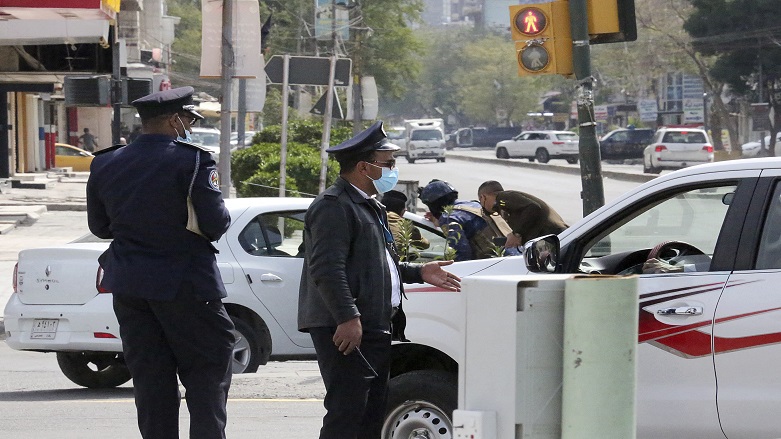COVID-19: Iraq confirms over 4,600 new cases, 29 deaths

ERBIL (Kurdistan 24) – Iraq's Ministry of Health and Environment announced on Monday that it had confirmed 4,655 new coronavirus infections and 29 deaths due to the highly-contagious disease over the previous 24 hours.
During the past two weeks, as the Middle Eastern nation began again to record spiking numbers of cases amid new strains of COVID-19 circulating among the population, the ministry has given stern warnings that a “very stormy and great disaster" was imminent if Iraqis continued to flaunt health precautions like masking and social distancing.
"Adherence to preventive measures while taking the vaccine is the only ways to get rid of this pandemic,” read a ministry statement on Sunday, adding that “wearing a mask has proven to be equivalent to the effect of the vaccine and possibly more effective in protecting against the virus."
"With the vaccination of a greater number of citizens until we reach societal [herd] immunity, which is 70 to 80 percent, then it is possible to reduce restrictions so that the citizen may be freer," it continued.
"Thus, taking the vaccine while adhering to preventive measures is very important to reduce the number of infections and reduce their spread."
Health officials announced that 27,095 tests had been completed over the past day, making for a total of 7,681,424 conducted since the beginning of the outbreak in Iraq in February 2020.
According to the health ministry’s figures, the total number of cases in Iraq has so far reached 798,547, with over 14,000 proving fatal.
Today's figures reported by the federal government in Baghdad do not include the most recent developments in the autonomous Kurdistan Region, which has its own health ministry and typically announces results later in the day. As such, Kurdistan's numbers are usually added to the following day's national tally.
The coronavirus has infected more than 123 million people worldwide and killed over 1.7 million, according to Johns Hopkins University’s database. The actual figures could be dramatically higher due to insufficient testing capabilities or underreporting.
Editing by John J. Catherine
